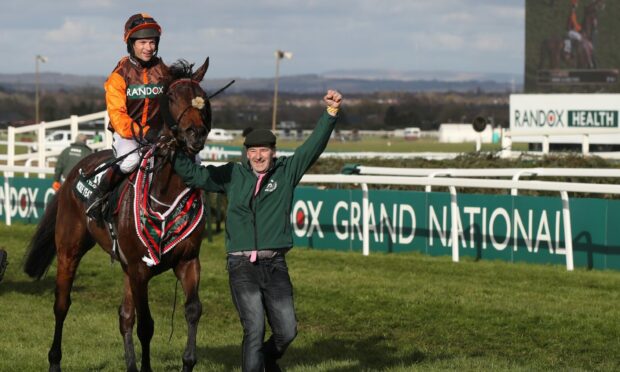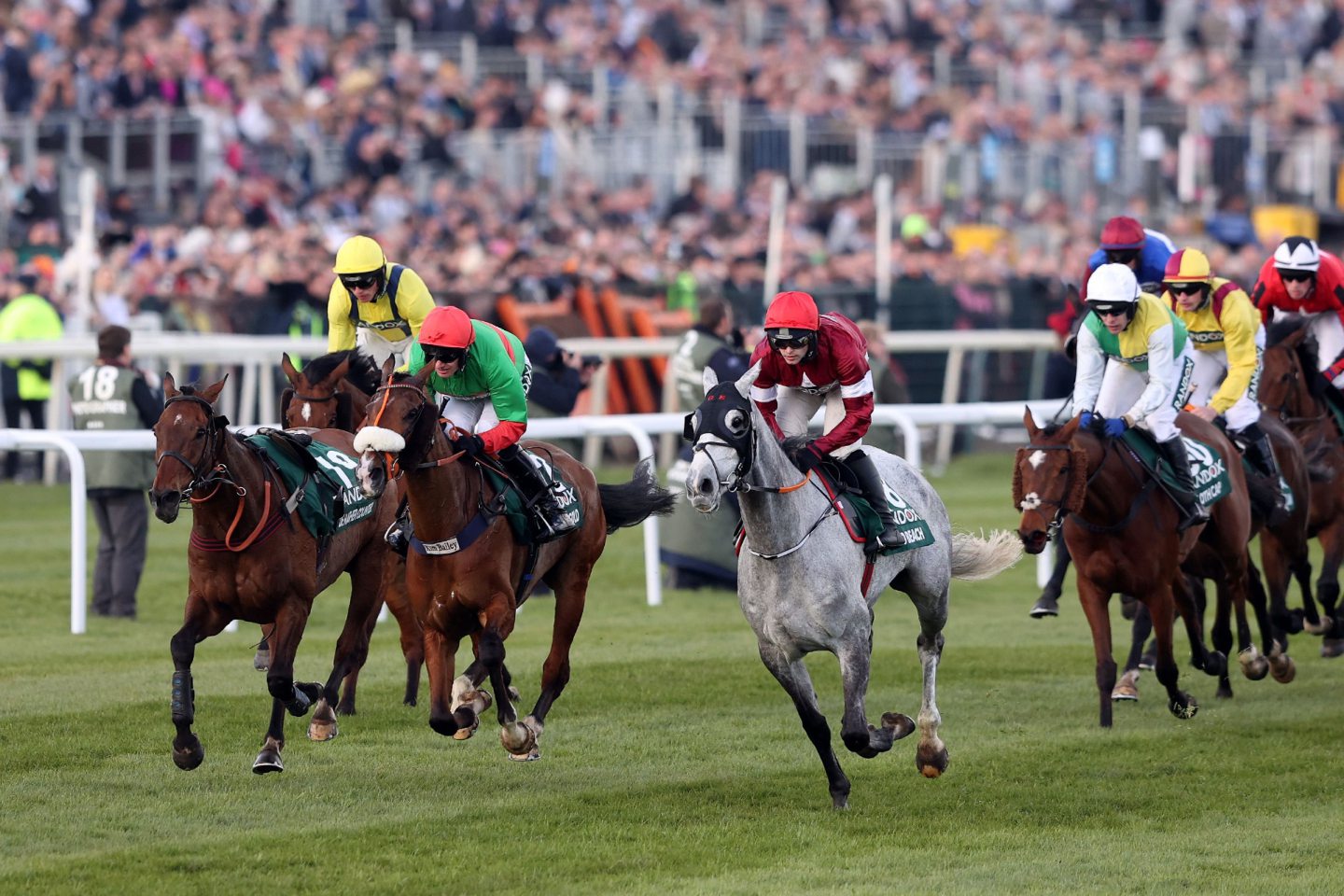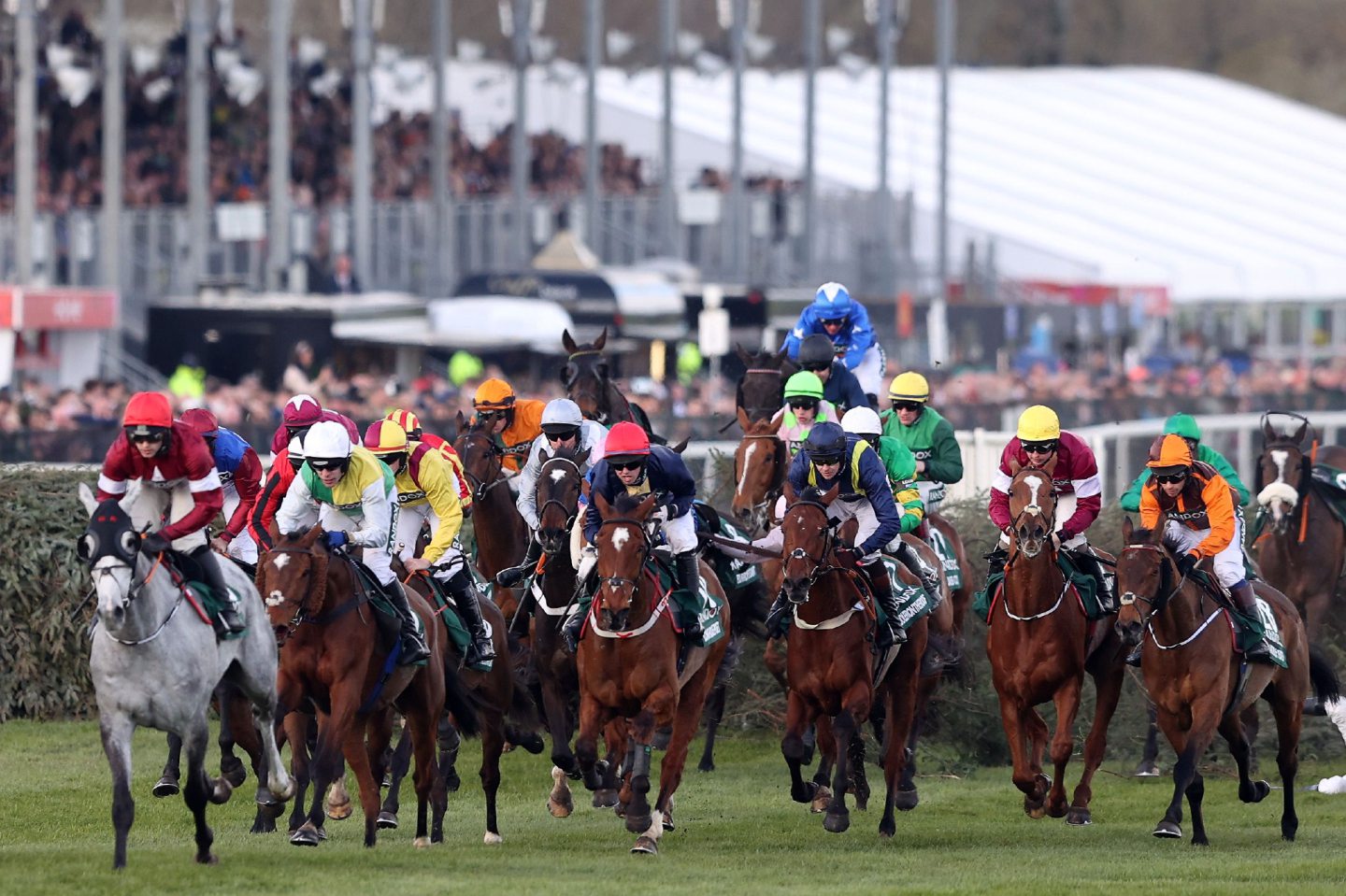It’s one of the few sporting festivals which we’re always told brings the whole country together. And, as a youngster, I still remember our family, just like millions of others, placing our 10p or 50p bets on one of the horses which was competing in that year’s Grand National.
By any standard, this annual institution is an epic communion of humanity and horsepower and the bravery of the jockeys isn’t in question.
But it also brings a horrific death toll for those who care about animals being placed in peril.
On Saturday, amidst all the fancy costumes, the thousands of fervent fans who flocked to Aintree, and the millions of TV viewers who witnessed the spectacle, the sponsors doubtless got their money’s worth.
It was only late in the evening and on Sunday morning that we discovered that yet another brace of horses, Discorama and Eclair Surf, had perished as a consequence of their participation in the main event at the three-day meeting.
Another two animals, Elle Est Belle and Solwara One, also died in previous races at the track on Friday and Saturday.
Whenever these tragedies occur, the same arguments are trotted out and tears are shed by the owners of the lost steeds. Nobody doubts the sadness felt by Eclair Surf’s trainer, Emma Lavelle, who was visibly distressed as she confirmed that her horse had suffered a traumatic and lethal head injury during Aintree’s showpiece race. As she said: “He was an incredibly special horse, loved by everyone and he will be missed terribly.”
Yet, in cold statistical terms, the Grand National is a killing field for horses and when I looked back at the number of casualties at the circuit since 2000, the scale of the deaths highlighted the dangers they face.
In that period – and there was no meeting because of Covid in 2020 – 59 horses have been killed at the Liverpool course in the space of 66 days of action. Changes have been carried out to some of the fences, following criticism from organisations such as the League Against Cruel Sports, but none of the amendments have made a difference to the litany of tristesse.
And, even as the news emerged of the latest fatalities, Animal Aid’s Horse Racing Campaigner, Jade Emery, insisted the National should be banned.
She said: “If a horse’s life is worthless to the racing industry, as we have seen every year at the Grand National meeting, then the industry itself is devoid of morals. It’s time to challenge the acceptance of this race meeting, and the associated deaths, and see it banned from taking place.”
Riders have a choice horses don’t
However, even as somebody who can understand these sentiments, that’s not going to happen for the foreseeable future. Almost every year, the National serves up drama and spectacular theatre in equal measure and it was the same this time around as Noble Yeats won the 174th edition of the race under Sam Waley-Cohen in his final ride as a jockey before retirement.
At least he had the option of picking his time to bow out and finish his career in a blaze of glory. That’s something often denied to the animals, without whom there would be no sport at all for the fans and punters.
When I walked around the circuit 20 years ago, what struck me was not the height of the fences – though they were daunting enough – but the pure folly of asking horses to jump blind into ditches, of jockeys using the whip on exhausted animals in pursuit of glory, and the extent to which the competitors were flirting with disaster every time they took part.
The essential thing to remember is that the riders have a choice. But the horses – who we are constantly told are born to jump – have no similar option.
The Last Fling was aptly named
In 2002, the news of the casualties was conveyed two hours after the end of the race, to a near-deserted press room, and the deaths of Manx Magic and The Last Fling were described as “incidents”. By that stage, the champagne was flowing, so who cared if a couple of nags had bitten the dust?
Ultimately, I’m realistic enough to concede that any calls to ban the National will probably fall on deaf ears, given how much it has captured the public imagination and how many millions of pounds it rakes in for the bookies.
“The death of Discorama today at the Grand National is a reflection of the shocking safety record of this race – it is the 14th horse to be destroyed at the race since the year 2000.”https://t.co/Gh5k29o5h7 pic.twitter.com/kezGU2Omlk
— League Against Cruel Sports (@LeagueACS) April 9, 2022
But the country’s enthusiasm for this event shouldn’t be used to justify carnage on a scale which has materialised in recent years. There have to be fewer participants, safer jumps, and enhanced care for injured horses.
And, as the League of Cruel Sports’ Chris Luffingham, said: “The use of the whip in the sport should be banned, because it is forcing horses to go beyond what they are able to cope with and results in stress, injuries and deaths.”
The figures are unarguable and the authorities have to investigate this issue again. It may never be risk free, but the Grand National horses deserve better.


